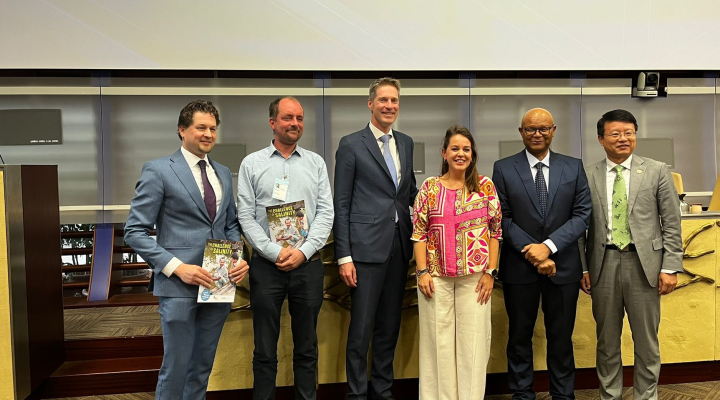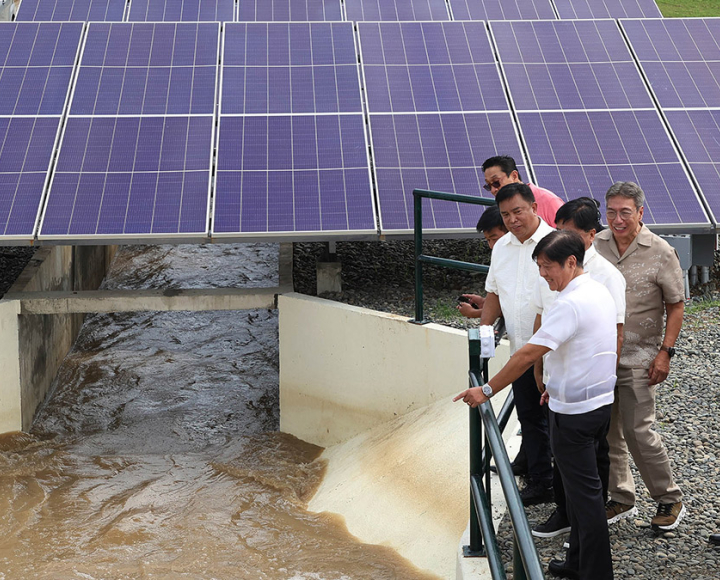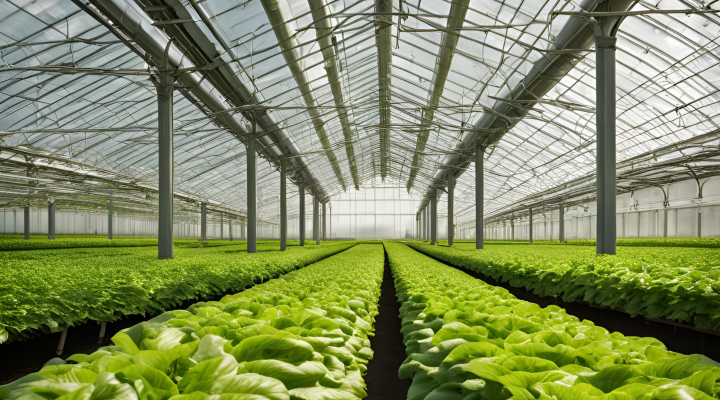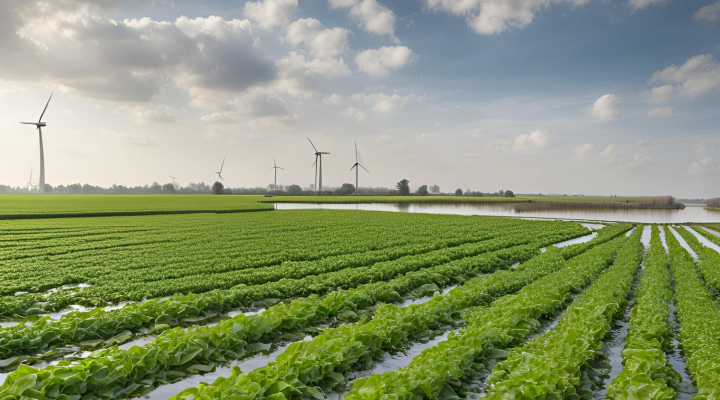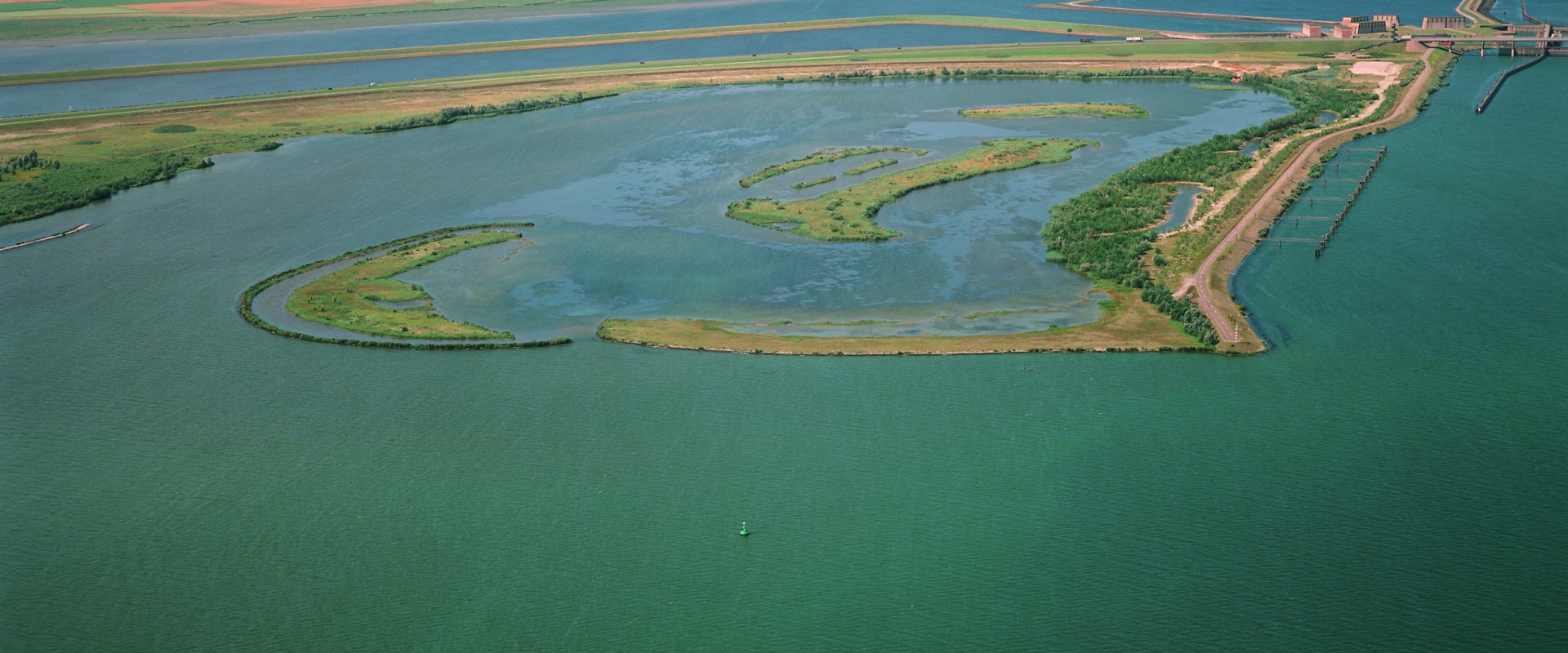
Dutch organisations combine knowledge on controlling salinisation in deltas in a new institute
Climate change, sea level rise and subsidence, are causing greater salinisation of the inland dyke lands along the Dutch coast as well as in other deltas in the world. This has led six Dutch think tank organisations to join forces and establish the Institute for Agriculture in Salinising Deltas with the aim of learning to use the available freshwater sparingly and smartly, and to make our agricultural system salinisation-proof.
Due to an increase in the concentration of salt in the water system, the available amount of freshwater decreases. Salinisation also makes ground and surface water less suitable for many users. In addition, salinization leads to damage to agricultural crops and threatens food production.
Unique initiative to combine knowledge and applied research
Thanks to its combination of applied water, soil and crop knowledge, the initiative is unique in the Netherlands and internationally relevant. Deltas in the world face the same threats and consist predominantly of clay-rich soils. Clay is very sensitive to salinisation. Once degraded soil has a poor structure, is less fertile and that will lead to lower yields and ultimately a lower income of the farmer. The increasing salinisation of ground and surface water reduces the availability of water for agriculture and many other functions and requires timely, robust, and sustainable solutions.
Living Lab
The emphasis of the Institute is on limiting the impact of salinisation as much as possible on the basis of thorough system understanding and practical knowledge (water, soil and crops). In addition, possibilities for adapting crops to more salty conditions are considered. The application is accelerated by working together in a Living Lab to develop and evaluate effective measures in the cultivation systems and in local and regional water management.
Limiting the impact of salinisation
By bringing together the knowledge from various coastal regions in the Netherlands, through the use of leading and internationally working knowledge partners, the Institute has crucial building blocks for the issue of increasing salinisation and availability of freshwater. The partners will work with governments and the business community on a National Knowledge Agenda on Salinisation. The knowledge cluster promotes coherence and collaboration in research and projects. As the initiator, the province of Fryslân has made the start possible.
Dutch founding partners
The substantive work of the Institute is made possible by its founding partners who make manpower available for a flying start. These are:
- University of Groningen,
- Deltares,
- Wageningen University & Research,
- Van Hall Larenstein University of Applied Sciences,
- Hanze University of Applied Sciences, and
- HZ University of Applied Sciences.
The Institute invites interested parties to become partners and actively participate in future projects, knowledge sharing and the development of the knowledge agenda.
The Institute will be located at the WaterCampus in Leeuwarden, the Netherlands.




